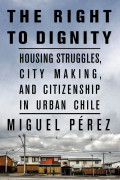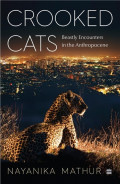ANTHROKINO: STATE OF ADDRESS
Come gather with us for another AnthroKino in which we’ll watch State of Address. The screening will be followed by […] The post ANTHROKINO: STATE OF ADDRESS appeared…
Come gather with us for another AnthroKino in which we’ll watch State of Address. The screening will be followed by […] The post ANTHROKINO: STATE OF ADDRESS appeared…
Administration has a difficult history in South Africa: apartheid was centrally an administrative project, through segregation and exclusion. Areas of […] The post A Crisis of Fiduciary Regulati…
Introduction Private health service delivery is becoming increasingly dominant in biomedical landscapes worldwide. In global health circles, private health services […] The post “You have to do …
In figure 1, the pen in John’s hand points to a column on the computer screen. On the same screen […] The post Movement and Meaning for Oil…
Mediated Lives is a careful, deeply reflexive, and ethnographically rich study of Iraqi urban refugees living through legal, social, and […] The post Mediated Lives: Waiting and Hope…
Abstract: Reviewing the Takhayyul Team’s long journey of ethics approvals by various institutional bodies, this paper questions the ethics of […] The post Ethics without the Ethics: The…
by M. Amin Esmailzade – Video project in ‘Future Anthropology’. In Future Anthropology, third year bachelor students present their thesis research in a creative and accessible…
Whenever I meet Merule, a 42-year-old Nigerian citizen living undocumented in Milan, Italy, I am struck by the number of people he knows. Merule’s social network unfolds throughout…
I grew up in an area surrounded by miombo woodland, located approximately 200 kilometres southeast of Lake Tanganyika. In the early 1990s, when I was five, my father…

How do poor people in the burgeoning cities of the Global South assert their right to housing and to the city? How do they constitute themselves, and demand…

This book is a rich cultural analysis of how people live with big cats in India in times of the Anthropocene and climate change. As people are increasingly…
There is a global push towards making AI more ethical and transparent. As critical contributions on the topic of AI have pointed out: even when computational applications are…
How do globalised health regimes create and shape landscapes of medical regulation and patient safety? This essay asks about the many ways in which patients, consumers, health advocates,…
Ethnographic moments spark curiosity and puzzlement, spur the search for new understanding, and are almost always seen to be some of the most generative parts of anthropological fieldwork.…
“Trust in humanitarian action” was the top item on the agenda of the 33rd international conference of the Red Cross movement which took place in Geneva in December…
any day or part day that the individual sees their child in person in the UK counts as a day on which they see their child in the…
What if the greatest legacy of uranium mining is not its localized radioactive toxicity, but the seemingly mundane set of bureaucratic practices it catalysed? In this post, I…
There’s a Committee for Committees! A few weeks ago, I received a message from a colleague. It was the sort of funny thing that one friend says to…
David Graeber’s wide-ranging – and, appropriately, sometimes wildly swashbuckling – set of essays sketches his anarchist utopia by default, as a social world free of bureaucracy. Bureaucracy, he…
Chair: Alpa Shah Discussant: Michael Herzfeld If the previous week in our series focused on the imagination, this week considers what for David Graeber was its antithesis: bureaucracy.…
David Graeber was certainly one of the most cited anthropologists of the early 21st century. More than a year after his untimely death, a substantive conversation about his…
When encountering the generosity of brilliant colleagues, one can only start with gratitude. Add to that a historical moment when a virus has reconfigured the languages, spaces, and…
Every so often something happens that perfectly encapsulates the consumptive death rattle that is the job market in higher education. A few weeks ago, the department of anthropology…
Natasha Raheja (Cornell University) will present on ‘Mediating mobility: Migration and brokerage at the borders of the State’. Elizabeth Challinor (Universidade NOVA de Lisboa) will ac…